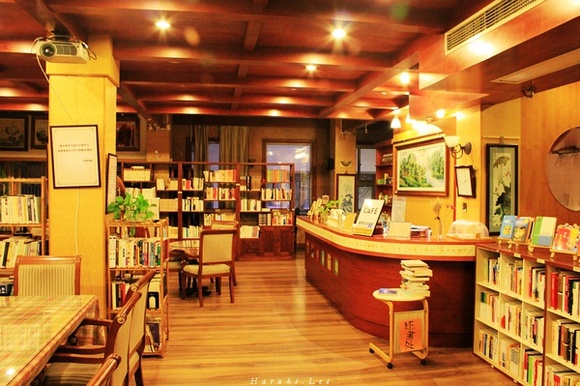Survey | can shops with coffee as the main income still be called bookstores?
So what is the current situation of brick-and-mortar bookstores? Is it like the gradual recovery of some media propaganda, or is it declining all the way? What are the survival ways of all kinds of physical bookstores, and what are the prospects? Why are the newly opened brick-and-mortar bookstores "going against the trend"? These are the issues that this article wants to discuss.
In the past 10 years, nearly 50% of private bookstores have closed down.
Behind the decline of the physical bookstore is the competition of price and cost, but it is a clich é that the impact and encirclement of the online bookstore makes the physical bookstore lose in the price and cost competition. on the other hand, the change of national reading habits and the decline of reading rate, the rising rent in the center of the city, the bookstore itself sticking to the tradition and other reasons further aggravate the operating dilemma of the physical bookstore.
From the above data, we can see that the number of new bookstores is decreasing every year. After the end of the "Golden decade" from 2000 to 2010, there are fewer and fewer new enterprises in the bookstore industry every year. From more than 300 in 2007 to more than a dozen in 2015. Every year, the number of active cancellation and passive cancellation of bookstores also gradually decreased, from more than 400 in 2006 to nearly zero in 2015. Corresponding to the total number of stores, from 382 in 2006, after nearly a decade of slow growth, only increased to 477, an increase of 24%, an increase of 95, less than 1/4 of the total number of cancelled and cancelled stores in 2006. According to the statistics of the all-China Federation of Industry and Commerce (2015), nearly 50% of private bookstores have closed down in the past 10 years, and this trend is still increasing. In view of this situation, some researchers have put forward some countermeasures, such as taking the compound management route, opening up online business, going deep into the community, avoiding high rent, bookstore operators need unity and so on. (GE Mengling, 2012) Children's books are the advantages of physical bookstores, which not only exceed the proportion of online bookstores, but also occupy an absolute advantage in their own sales. Purchasers of teaching materials, the elderly and those with lower academic qualifications are all more inclined to physical bookstores, but this part is likely to be cut and turned. (Liu Weijia, 2014) some articles also pointed out that at present, due to changes in reading habits and rising rents, only large and medium-sized bookstores in first-tier cities have been hit, while bookstores in second-and third-tier cities and small and medium-sized bookstores have been less impacted. but it's only temporary. (du Hui, 2011) specific to the advantages of online bookstores over physical bookstores, not only in the price part, but also in the service part. For example, online bookstores recommend relevant books according to readers' browsing and purchase records, and build evaluation and sharing based on readers' information. At the same time, the environment that brick-and-mortar bookstores are proud of is interpreted as more of a desire to read than to buy. The researchers encourage that on the basis of reading experience as the core, physical bookstores should re-recognize their role, strengthen the construction of purchasing atmosphere, and be more inclined to sales.

Important Notice :
前街咖啡 FrontStreet Coffee has moved to new addredd:
FrontStreet Coffee Address: 315,Donghua East Road,GuangZhou
Tel:020 38364473
- Prev

Yunnan Hougu opens the era of Intelligent Coffee Manufacturing in China
To break the monopoly of foreign production lines, it is understood that the domestic first and international leading instant coffee production line independently developed by Hougu has achieved fully automated and intelligent production and system integration, and its degree of numerical control has reached more than 95%. Production equipment through field bus control and network information technology control networking, production process automatic monitoring and diagnosis technology, the main
- Next

Introduction to Brand recommendation of classified varieties of Coffee beans in China
At present, there are about 60 coffee-producing countries, most of which are located in areas with an elevation of 300 meters to 400 meters, and sometimes coffee trees are cultivated on highlands with elevations of 2000 meters to 2500 meters, but those planted on slopes above 1500 meters above sea level are said to be of better quality. The most suitable condition for the cultivation of coffee trees is that the average annual rainfall is 1500 to 2000.
Related
- Unexpected! Ruixing Telunsu lattes use a smoothie machine to foam milk?!
- % Arabia's first store in Henan opens into the village?! Netizen: Thought it was P's
- Does an authentic standard mocha coffee recipe use chocolate sauce or powder? Mocha Latte/Dirty Coffee/Salty Mocha Coffee Recipe Share!
- What is the difference between Vietnam egg coffee and Norway egg coffee? Hand-brewed single product coffee filter paper filter cloth filter flat solution!
- What is the difference between sun-cured and honey-treated coffee? What are the differences in the flavor characteristics of sun-honey coffee?
- How to make Italian latte! How much milk does a standard latte use/what should the ratio of coffee to milk be?
- How to make butter American/butter latte/butter Dirty coffee? Is hand-brewed coffee good with butter?
- Is Dirty the cold version of Australian White? What is the difference between dirty coffee/decent coffee and Australian white espresso?
- Relationship between brewing time and coffee extraction parameters How to make the brewing time fall to 2 minutes?
- Got entangled?! Lucky opens a new store, Mixue Ice City, and pursues it as a neighbor!

